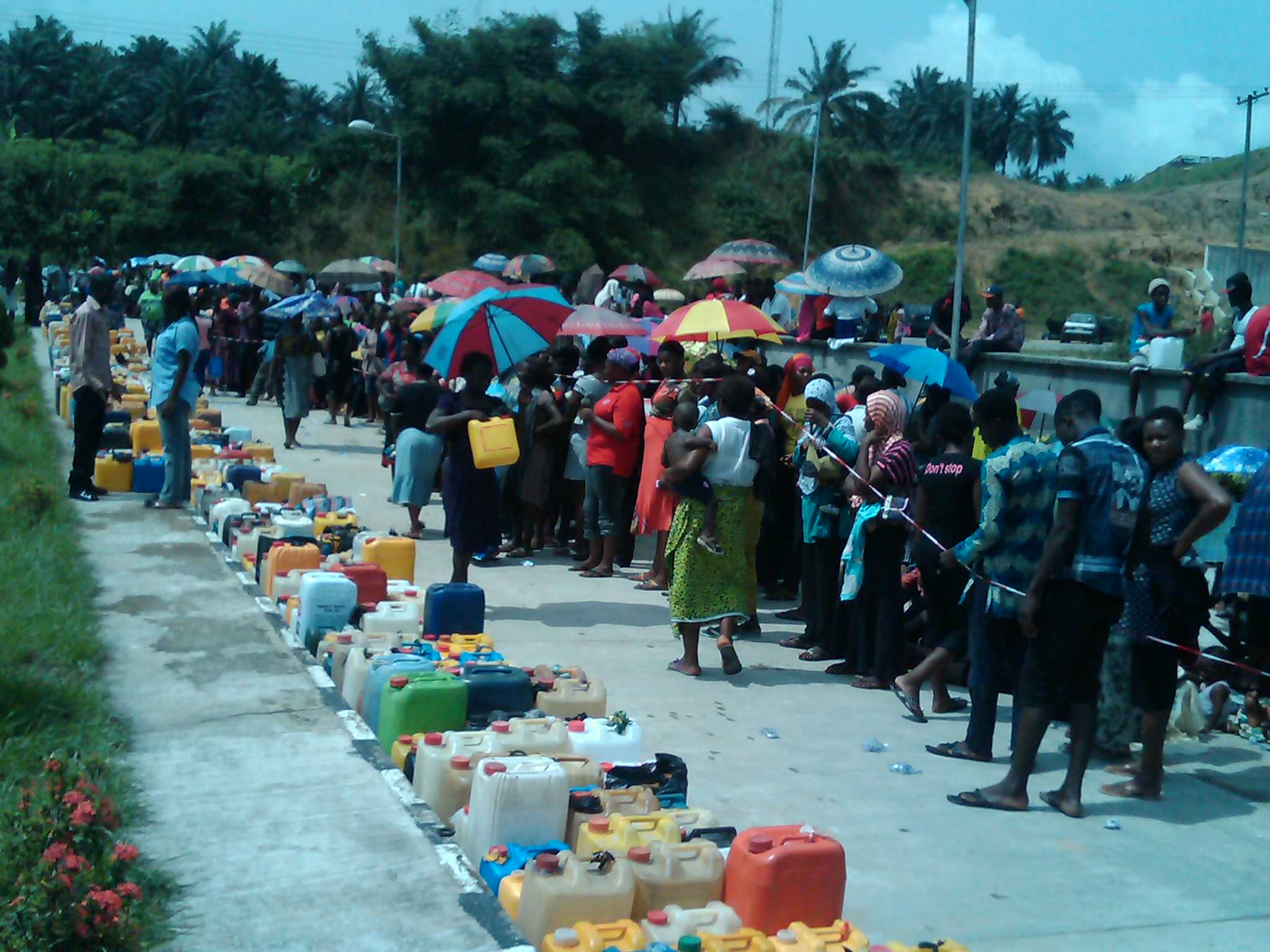The Nigerian National Petroleum Corporation (NNPC) has absolved itself of blame for flouting any presidential directive to discontinue the subsidy on kerosene as alleged by the Governor of Central Bank of Nigeria (CBN), Mallam Sanusi Lamido Sanusi.
THISDAY had exclusively obtained and reported the presidential directive given by the late President Umaru Musa Yar’Adua in 2009, ordering that the subsidy on kerosene should be removed.
But in the same letter signed by his then Principal Secretary, Mr. David Edevbie, he had also ordered that the announcement on the removal of the subsidy should not be made public.
Group Executive Director of Production and Exploration of NNPC, Mr. Abiye Membere, told journalists at the weekend in Abuja that the presidential directive stopping the subsidy on kerosene, which the CBN governor had accused it of disregarding, was actually stayed for execution as a result of its possible repercussions on the masses.
Membere also disclosed that subsidy claim payments on kerosene, which the CBN had equally accused NNPC of illegally collecting, are actually not paid to the corporation but rather it remits proceeds from its sale of the product to the Federation Account, which in turn finds a way to balance it up.
“After the late President Umaru Yar’Adua’s directive to stop subsidy on kerosene, another series of meetings were held, where it was decided that removing subsidy on kerosene would be greeted with formidable opposition.
“In fact, the memo that was sent to the PPPRA (Petroleum Products Pricing Regulatory Agency) for suspension of the subsidy removal was categorical in saying public announcement should be avoided.
“So how can such a step be taken without the public knowing? There was a meeting and the then Minister of Finance, Dr. Mansur Muktar, former Petroleum Minister, Lukman Rilwan, the Director of Budget Office, with about nine other government officials, observed that the kerosene subsidy cannot be treated the way subsidy was removed on diesel. It was then reasoned that kerosene is for the poor masses,” Membere said.
He further explained: “NNPC was then directed to step down the implementation of that presidential directive and that they would go back to the president to reverse it. It was at this point that the president fell ill and never made it.”
Speaking on the details of subsidy payments on kerosene to the corporation, Membere said: “It is not that the NNPC has never been paid subsidy claims on kerosene before.
“In fact, under Olusegun Aganga as Minister of Finance, subsidy claims between 2009 and 2011 were paid to the NNPC. So this payment has removed any doubt about the fact that the NNPC was not authorised to carry on with the directive on removing the subsidy on kerosene.
“So the ‘missing money’ was never in the hands of the NNPC; this subsidy is not the money that the NNPC collected from government. For example, the subsidy on kerosene, it is not that government will pay the NNPC the remaining N100 on the product directly.
What happens is that the NNPC sells the product at N50 and then pays that into the Federation Account and then expects government to balance it up from the Federation Account with the subsidy claims of the NNPC.
“Nigerians must understand that NNPC has never collected any money from government as subsidy claims. The NNPC simply paid the N50 we collected at the pump into the Federation Account. However, people turn around and say the NNPC owes government.
“It is simply because the Federation Account is not balanced and they think that because the NNPC has defaulted simply because we have not paid the required figure, forgetting that the balance of what we ought to pay is with the federal government.”
Membere said the Federal Ministry of Finance had not denied this position, adding that the CBN must know that the NNPC could not pay what it does not have.
“NNPC is not the sole agency of government that determines how much subsidy claims should be. We work with the PPPRA and other agencies of government, which scrutinise all our documents,” he explained.
He also said on the procedure in transactions involving the Federation Account that “there is a difference in government-to-government transactions as against private sector-government transactions.







